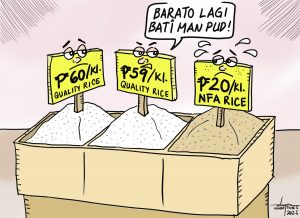BY JULIUS VICTORINO A. FERNANDEZ & DENIEL MONTEBON
FREEDOM of expression is a cornerstone of democratic societies, enabling individuals to share their thoughts, beliefs, and criticisms without fear of state censorship. In the Philippines, this right is enshrined in the Constitution and plays a vital role in the nation’s social and political discourse.
However, the rise of online accountability movements often likened to cancel culture in Western contexts has prompted conversations about the limits of free speech. While cancel culture is not as deeply rooted or widespread in the Philippines, there are emerging trends in digital spaces that reflect similar dynamics.
This essay explores how freedom of expression and social accountability can coexist in the Philippine setting.
Freedom of expression allows for the flourishing of diverse perspectives and has been instrumental in pushing forward key movements in Philippine history from the anti-colonial struggle to modern-day activism for women’s rights, indigenous peoples, and the LGBTQ+ community. It provides a platform for marginalized voices and shields unpopular opinions from being silenced. Still, this freedom does not shield individuals from criticism or consequences. Harmful speech such as those inciting violence, spreading hate, or disinformation—can and often should be challenged.
In the local setting, what resembles “cancel culture” typically manifests in social media call-outs, online boycotts, and digital backlash against public figures or controversial remarks. Though not as systemic or organized as in Western societies, these reactions still serve as a form of grassroots accountability. With institutional mechanisms often perceived as slow or ineffective, Filipinos especially younger generations use digital platforms to demand accountability and highlight injustices that might otherwise be ignored.
However, the danger lies when such online actions escalate into personal attacks, misinformation, or efforts to permanently silence individuals for past mistakes or unpopular views. In some cases, people have faced extreme backlash for statements made out of ignorance rather than malice. When the intent is to shame or destroy rather than to educate or reform, these actions risk undermining the very freedom of expression they claim to defend.
The Philippine digital landscape must strike a balance between encouraging open dialogue and promoting responsible speech. What’s needed is a culture of constructive criticism and room for learning and redemption.
Rather than mimicking Western-style cancel culture, Filipino netizens and institutions should develop a nuanced approach that distinguishes between legitimate critique and outright silencing.
In conclusion, freedom of expression and social accountability can coexist in the Philippines, but it requires clarity, empathy, and maturity in both public and online discourse.
While Filipinos may not experience cancel culture in its most aggressive forms, the country is not immune to its effects. What matters most is building a society that values both the right to speak and the responsibility to listen.
_______________________________
Julius Victorino Fernandez and Deniel Montebon are currently third year political science students from the University of Cebu-Main.

